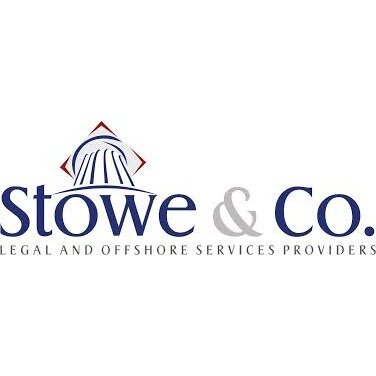Best Energy Regulatory Law Lawyers in Dominica
Share your needs with us, get contacted by law firms.
Free. Takes 2 min.
Or refine your search by selecting a city:
List of the best lawyers in Dominica
About Energy Regulatory Law in Dominica
Energy Regulatory Law in Dominica governs the generation, distribution, and consumption of energy resources across the country. The regulatory framework aims to balance energy development with environmental protection, consumer rights, and national interests. With the country’s increasing focus on renewable energy - especially geothermal, hydroelectric, and solar - the law seeks to attract investment, ensure reliable energy supply, and promote sustainable growth. Regulatory oversight is largely managed by the government through specific statutes and agencies tasked with implementing energy policies, licensing operators, and supervising compliance.
Why You May Need a Lawyer
Navigating Energy Regulatory Law in Dominica can be complex for individuals, businesses, or investors. You may need a lawyer if you are:
- Establishing or investing in an energy project, such as solar, wind, or geothermal power plants.
- Applying for energy generation, distribution, or retail licenses.
- Negotiating energy supply agreements or power purchase contracts.
- Addressing regulatory compliance and permits for new construction or operations.
- Facing disputes regarding energy rates, service interruptions, or environmental concerns.
- Seeking advice on the environmental impacts and land use related to energy projects.
- Challenging or appealing regulatory decisions made by governmental bodies.
- Dealing with utility providers or contesting billing issues.
A lawyer helps clarify your rights, ensures compliance with local regulations, represents you in negotiations or hearings, and provides risk assessments for your energy-related initiatives.
Local Laws Overview
Key components of Energy Regulatory Law in Dominica include:
- Electricity Supply Act: Outlines licensing, operational, and safety standards for electricity companies.
- Geothermal Resources Development Act: Provides rules for the exploration and development of geothermal resources, including environmental assessments and licensing.
- Environmental Protection Legislation: Requires energy projects to adhere to environmental standards and acquire proper permits.
- Consumer Protection Statutes: Address fair rates, quality of service, and mechanisms to handle consumer complaints regarding energy supply.
- Investment Incentives: Dominate the renewable energy sector and outline tax breaks or concessions for eligible projects.
- Regulatory Authority: The Independent Regulatory Commission (IRC) is the main body supervising the electricity sector, overseeing licenses, setting tariffs, and arbitrating disputes.
These laws and regulatory agencies form the backbone of Dominica’s evolving energy sector, encouraging sustainability while protecting public interest.
Frequently Asked Questions
What is the role of the Independent Regulatory Commission (IRC) in Dominica?
The IRC is responsible for licensing electricity providers, setting tariffs or rates, enforcing safety and quality standards, and addressing complaints or disputes in the electricity sector.
Can foreign investors participate in Dominica’s energy sector?
Yes, foreign investors can participate, particularly in renewable energy projects. However, they must comply with local licensing, environmental, and regulatory requirements.
What permits are needed to start a renewable energy project?
You will typically need an energy generation license, environmental impact assessment approval, land use permits, and, depending on the resource type, additional sector-specific approvals.
How are electricity rates set in Dominica?
The IRC evaluates input costs, operational expenses, and infrastructure investments to set fair and reasonable tariffs for consumers and businesses.
Can consumers challenge energy bills or tariffs?
Yes, consumers can file complaints with the IRC or approach the relevant utility provider directly if they believe they have been overcharged or treated unfairly.
What environmental regulations must energy projects follow?
Projects must undergo environmental impact assessments and adhere to standards aimed at minimizing pollution, resource depletion, and negative ecological impacts.
Are there incentives for using renewable energy in Dominica?
Yes, the government offers tax concessions, import duty exemptions, and other incentives to promote renewable energy development and usage.
What happens if an energy producer fails to comply with regulations?
Noncompliance can result in fines, suspension or revocation of licenses, and legal action by regulatory authorities or affected parties.
Is net metering allowed for solar power systems?
Net metering policies and specifics are managed by the IRC. Households or businesses interested in connecting solar systems to the grid should contact the IRC for the latest regulations and approval procedures.
How can disputes between energy providers and consumers be resolved?
Disputes are generally addressed through the IRC’s complaint and mediation mechanisms. Legal action in courts is also an option if administrative remedies are insufficient.
Additional Resources
- Independent Regulatory Commission (IRC): Primary regulator for electricity and energy matters in Dominica.
- Ministry of Energy and Public Utilities: Oversees national energy policies, investment opportunities, and sustainable development goals.
- Environmental Coordinating Unit (ECU): Handles environmental assessments and approvals for energy projects.
- Dominica Geothermal Development Company: Key driver of geothermal energy initiatives in the country.
- Chamber of Commerce: A helpful organization for business and investment guidance in the energy sector.
Next Steps
If you require legal assistance regarding Energy Regulatory Law in Dominica, consider the following steps:
- Identify your specific issue - such as licensing, investment, compliance, or dispute resolution - and gather any relevant documents or correspondence.
- Research and consult a reputable lawyer who specializes in energy law or administrative law within Dominica.
- Check whether preliminary advice can be obtained from regulatory bodies or industry associations mentioned in the resources above.
- Prepare a list of questions or concerns to discuss with your lawyer to ensure a focused consultation.
- Ensure all engagements and decisions comply with both local laws and the guidance provided by relevant regulatory authorities.
Getting the right legal advice at an early stage can save time, prevent costly mistakes, and help you navigate the regulatory landscape confidently.
Lawzana helps you find the best lawyers and law firms in Dominica through a curated and pre-screened list of qualified legal professionals. Our platform offers rankings and detailed profiles of attorneys and law firms, allowing you to compare based on practice areas, including Energy Regulatory Law, experience, and client feedback.
Each profile includes a description of the firm's areas of practice, client reviews, team members and partners, year of establishment, spoken languages, office locations, contact information, social media presence, and any published articles or resources. Most firms on our platform speak English and are experienced in both local and international legal matters.
Get a quote from top-rated law firms in Dominica — quickly, securely, and without unnecessary hassle.
Disclaimer:
The information provided on this page is for general informational purposes only and does not constitute legal advice. While we strive to ensure the accuracy and relevance of the content, legal information may change over time, and interpretations of the law can vary. You should always consult with a qualified legal professional for advice specific to your situation.
We disclaim all liability for actions taken or not taken based on the content of this page. If you believe any information is incorrect or outdated, please contact us, and we will review and update it where appropriate.
Browse energy regulatory law law firms by city in Dominica
Refine your search by selecting a city.











